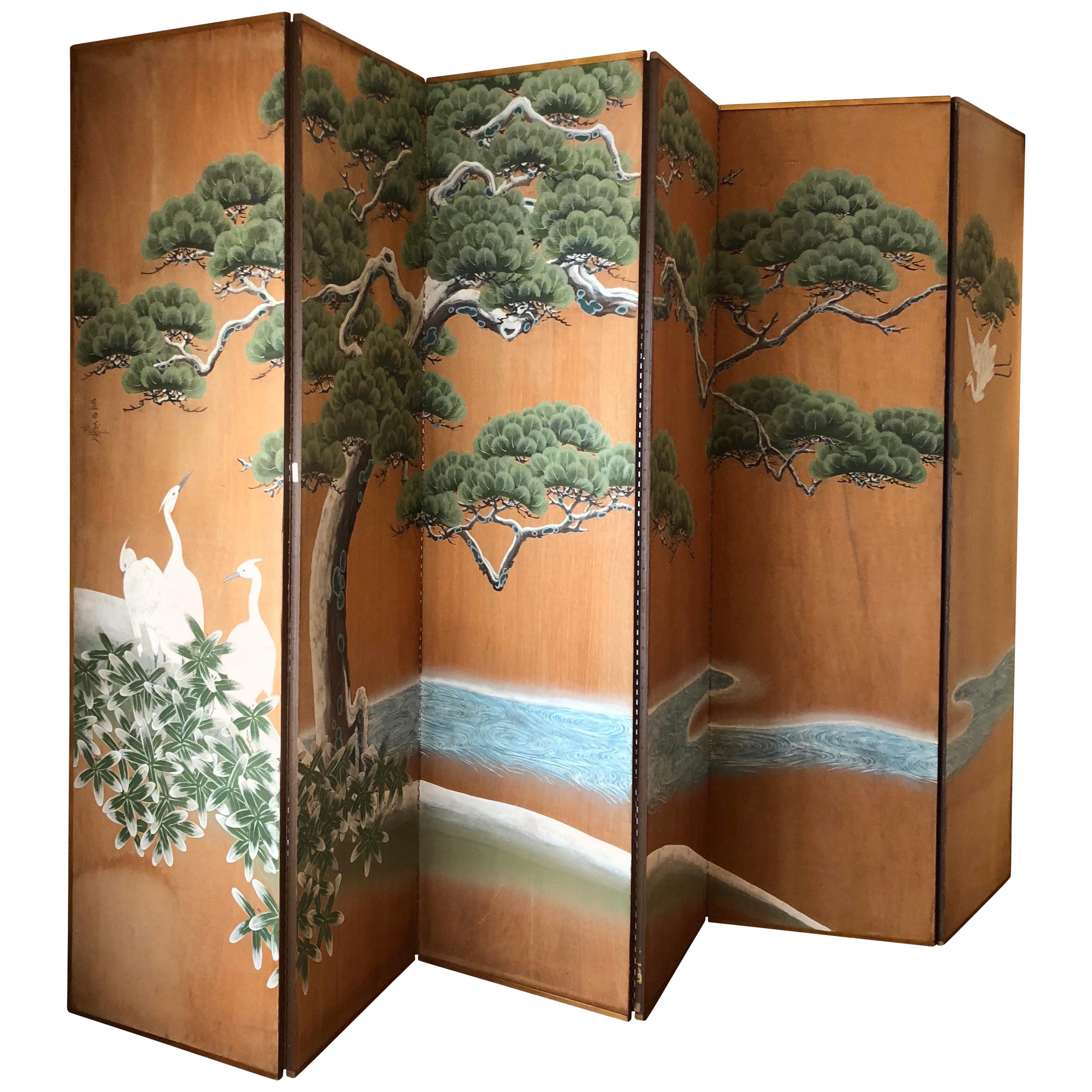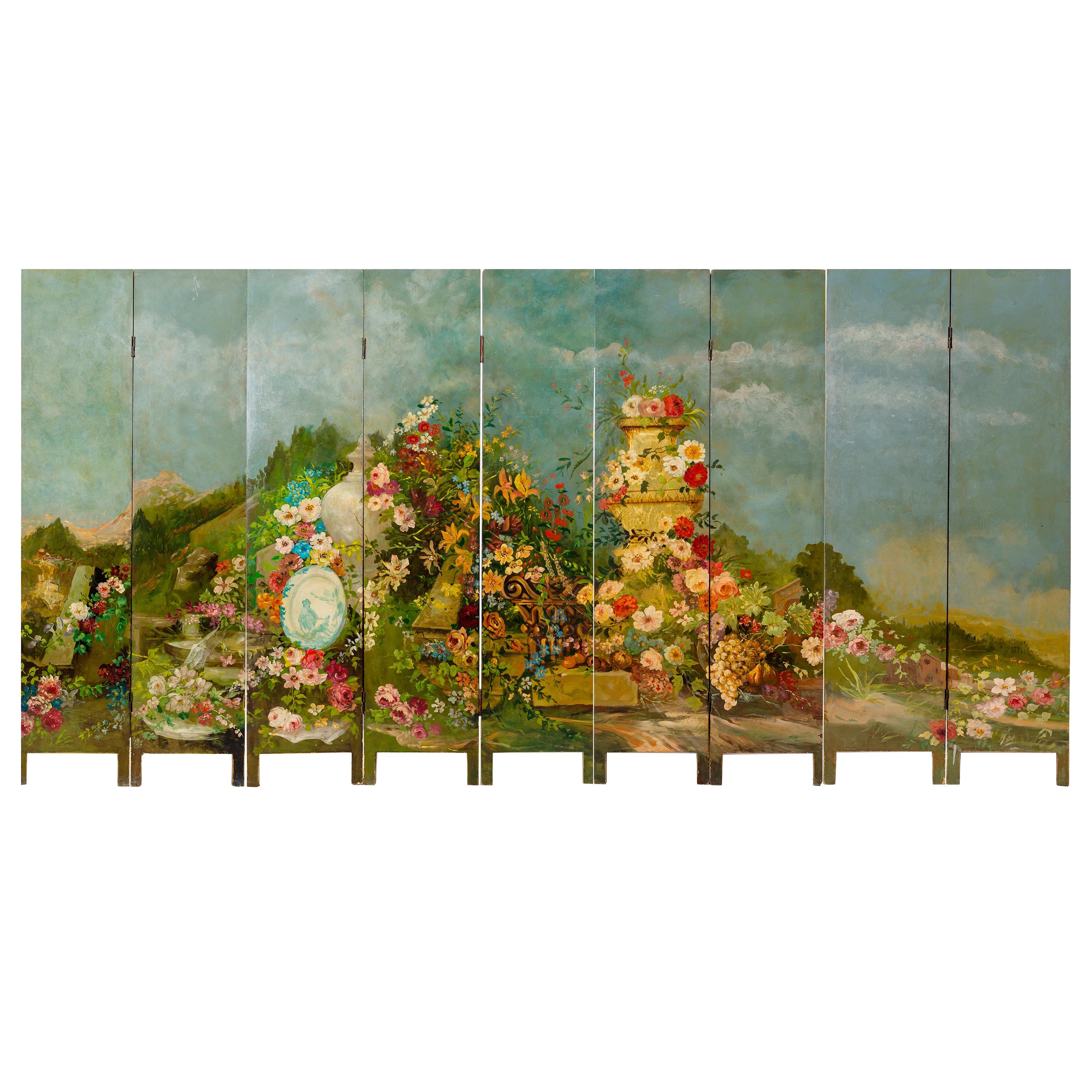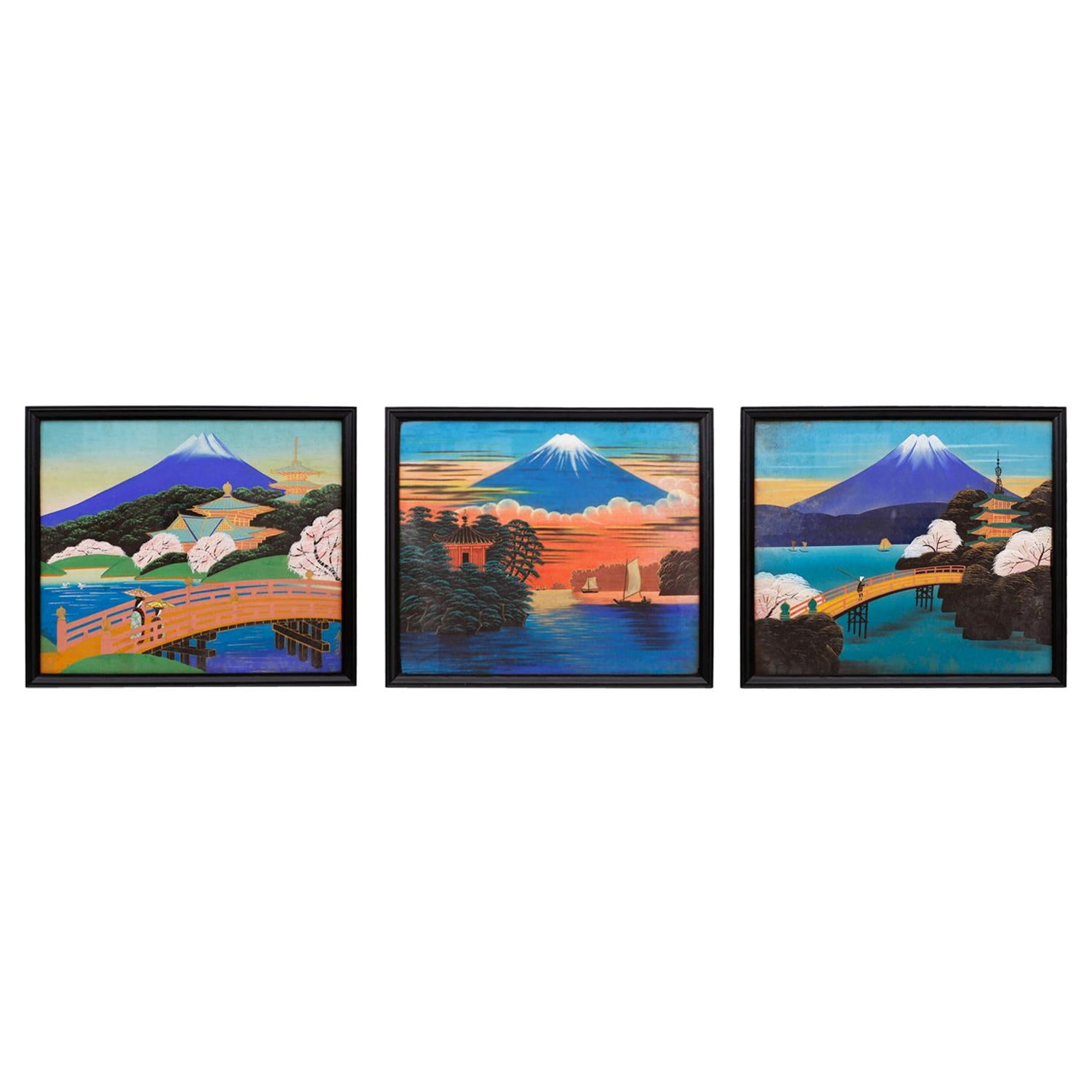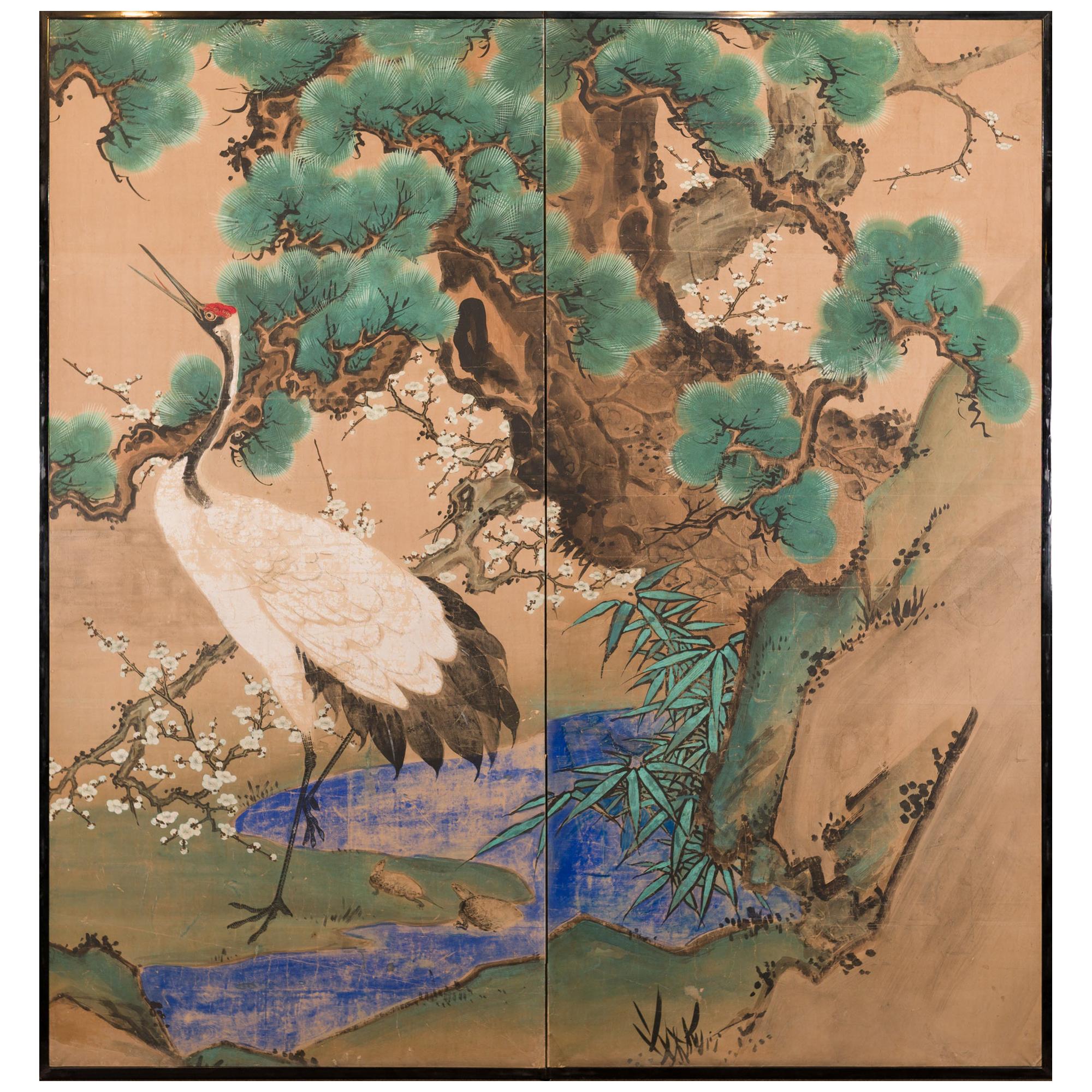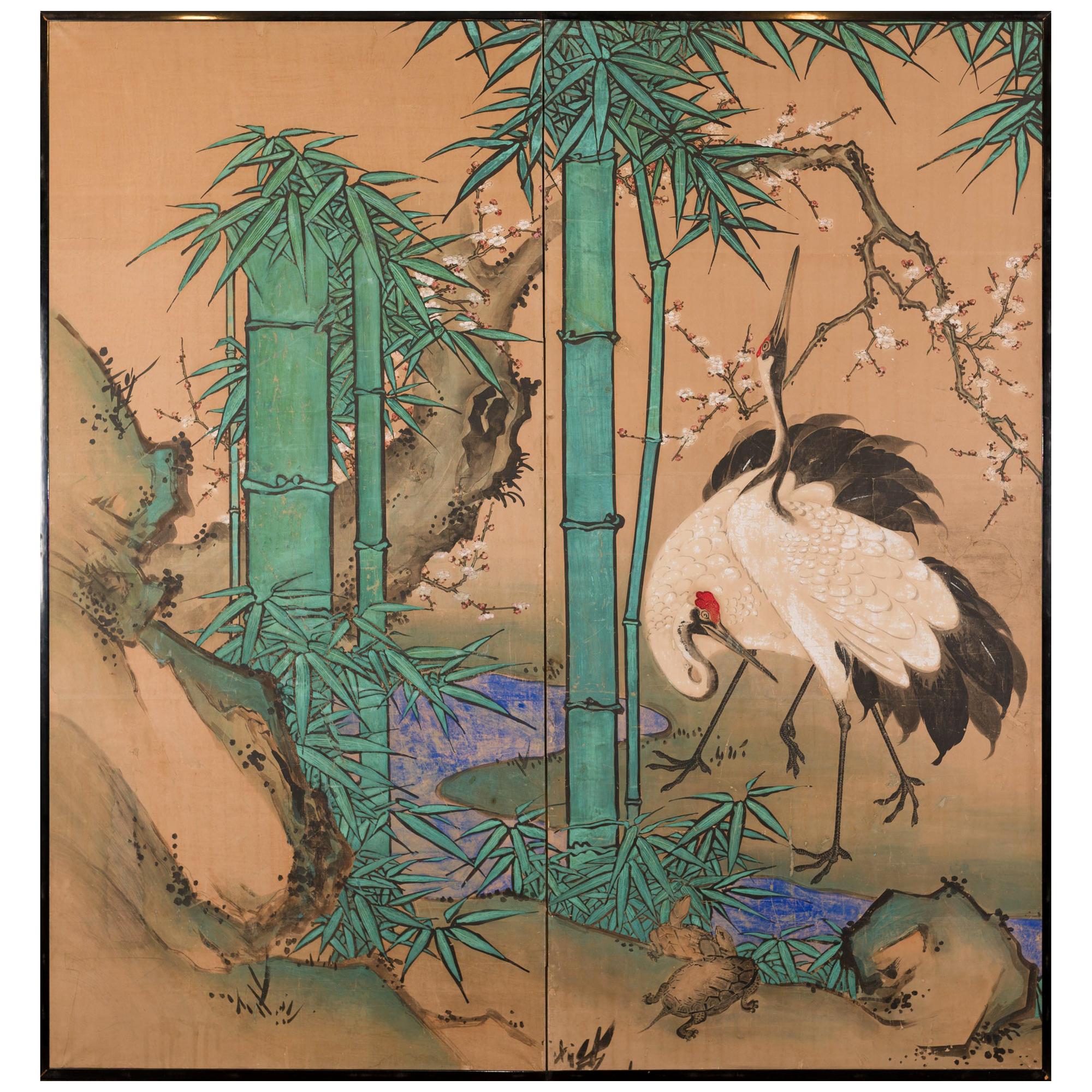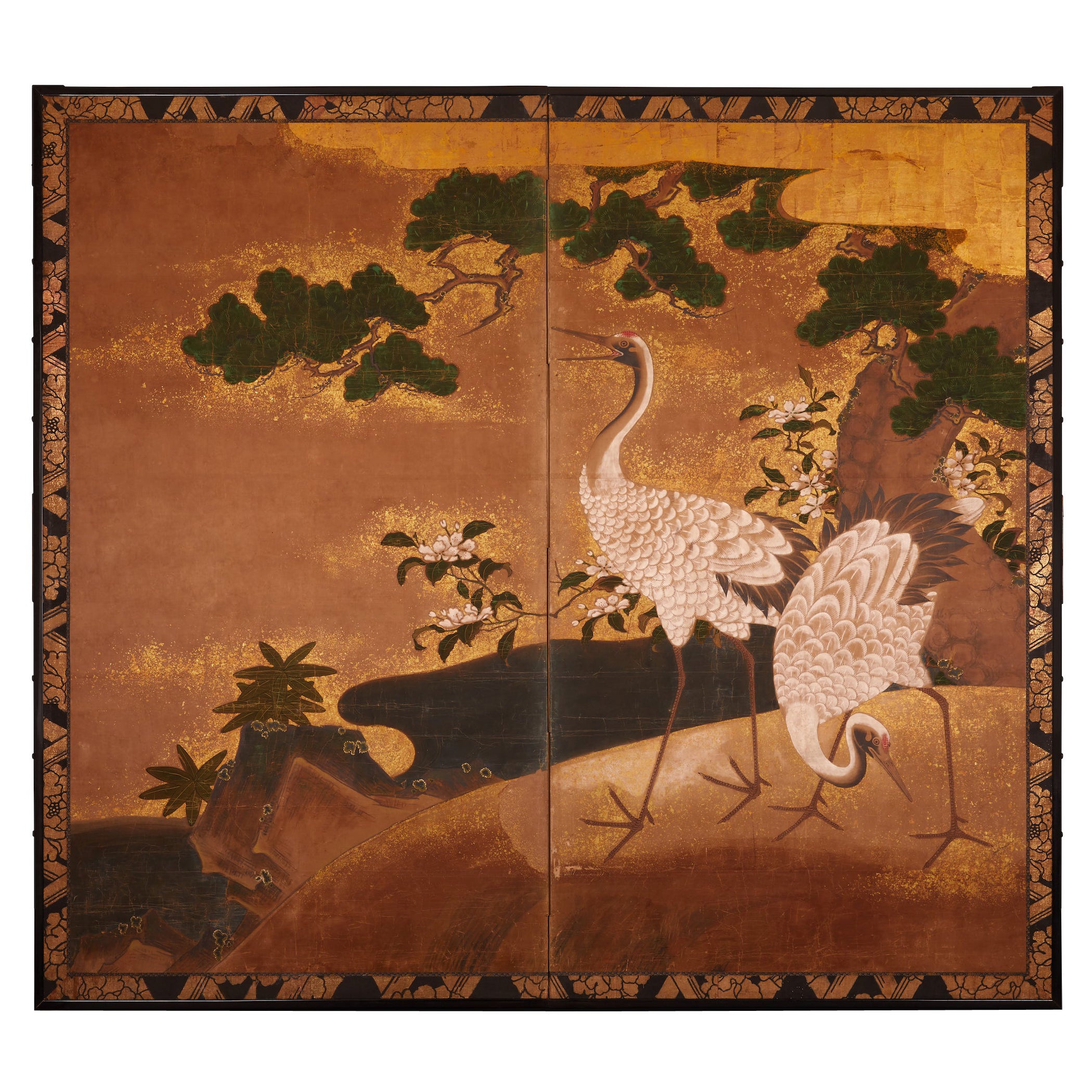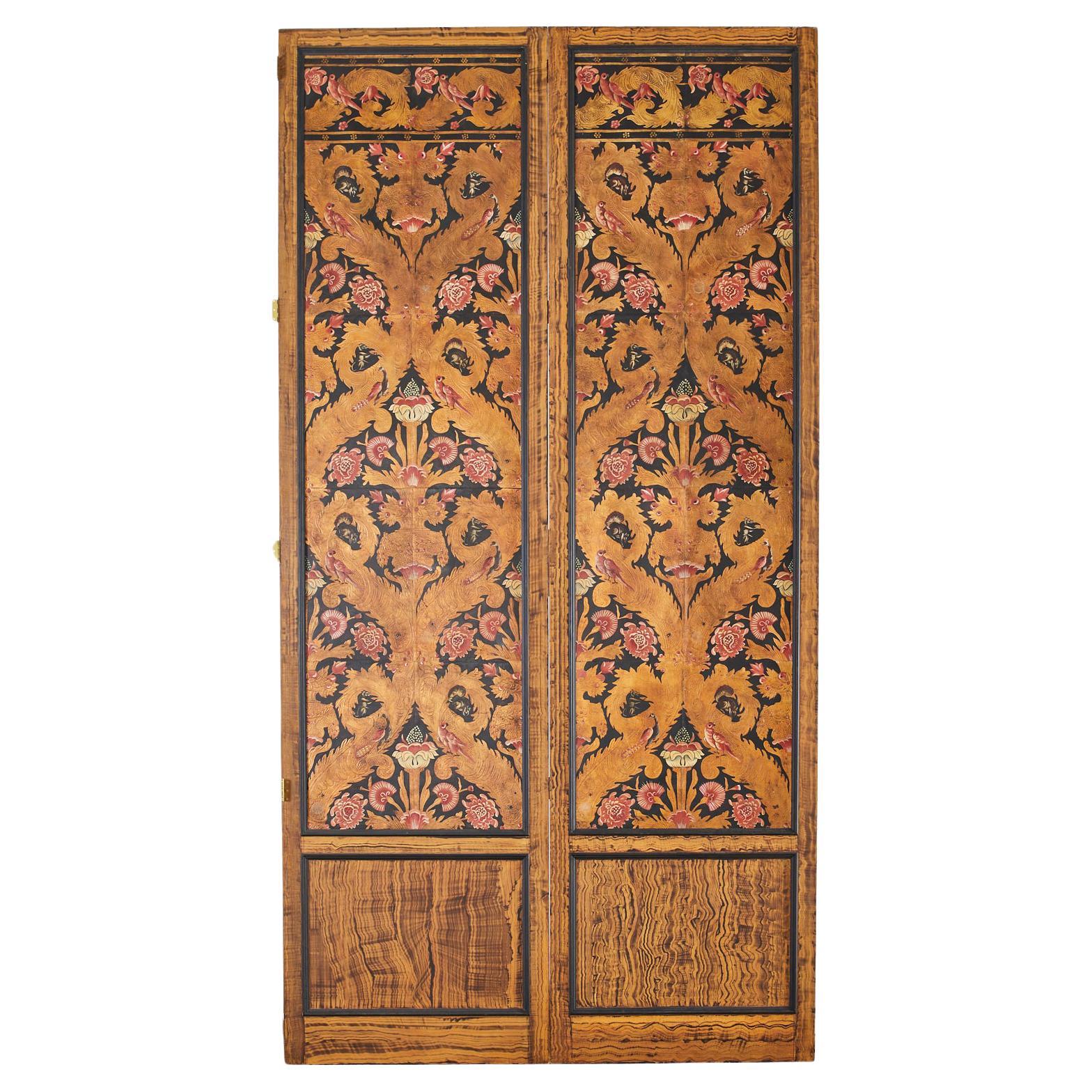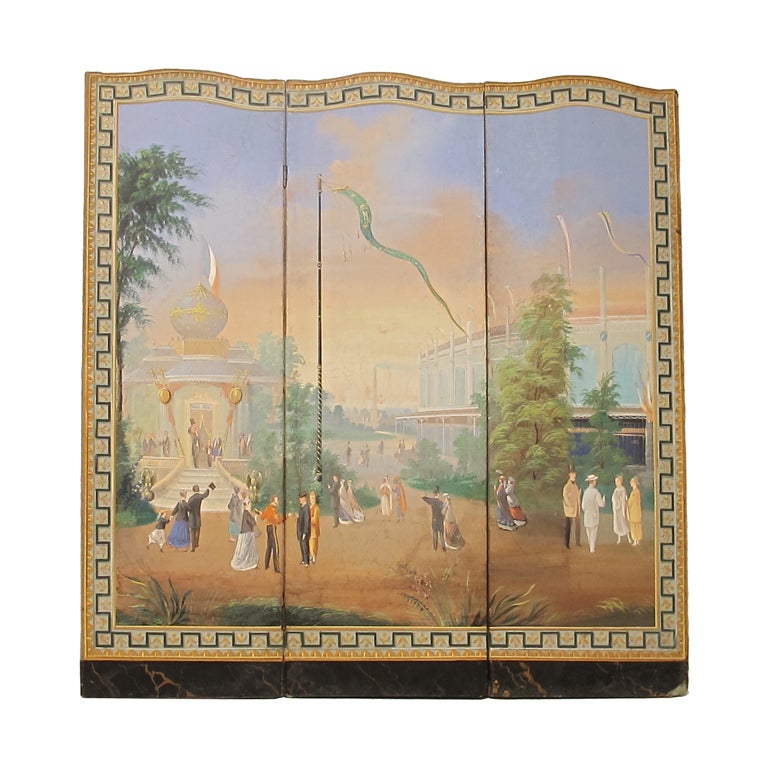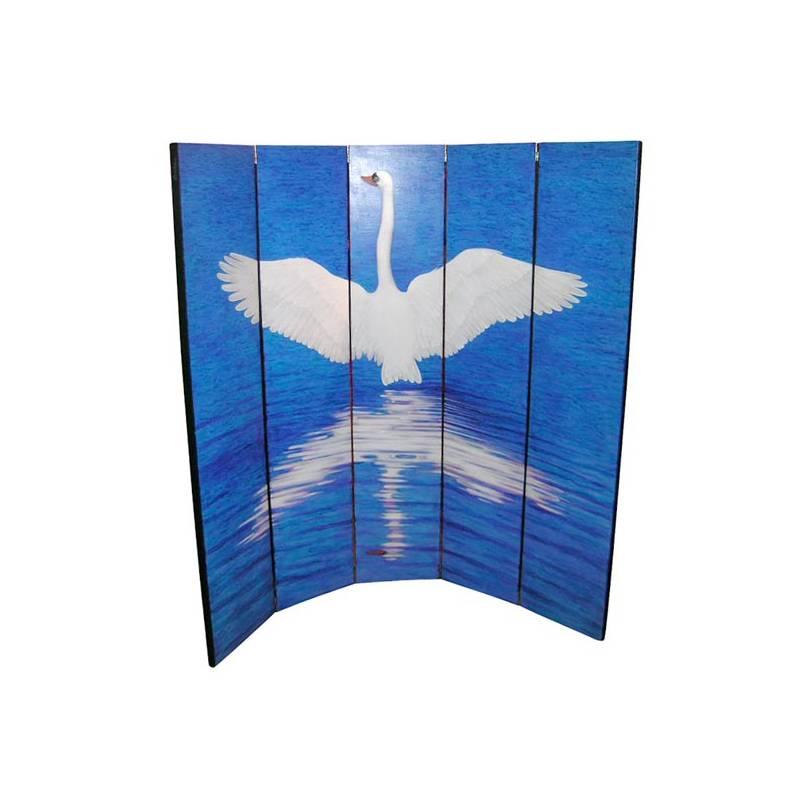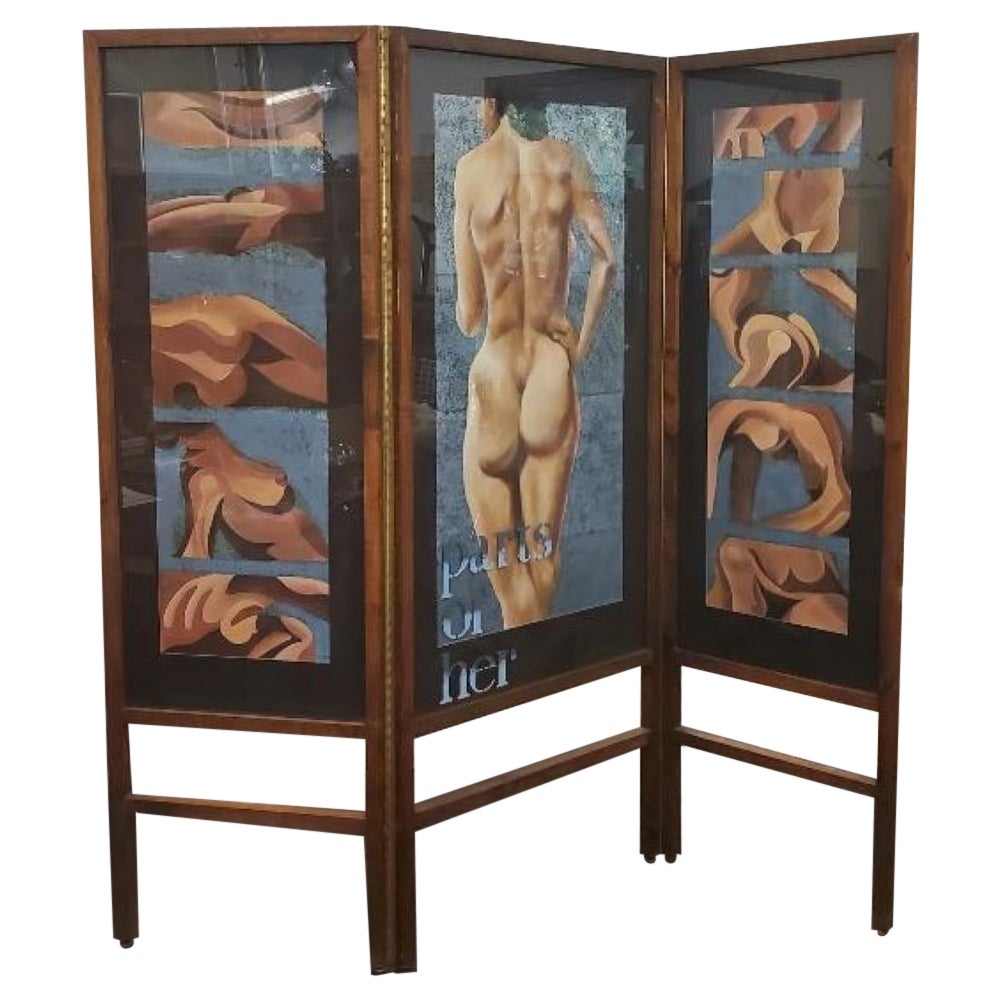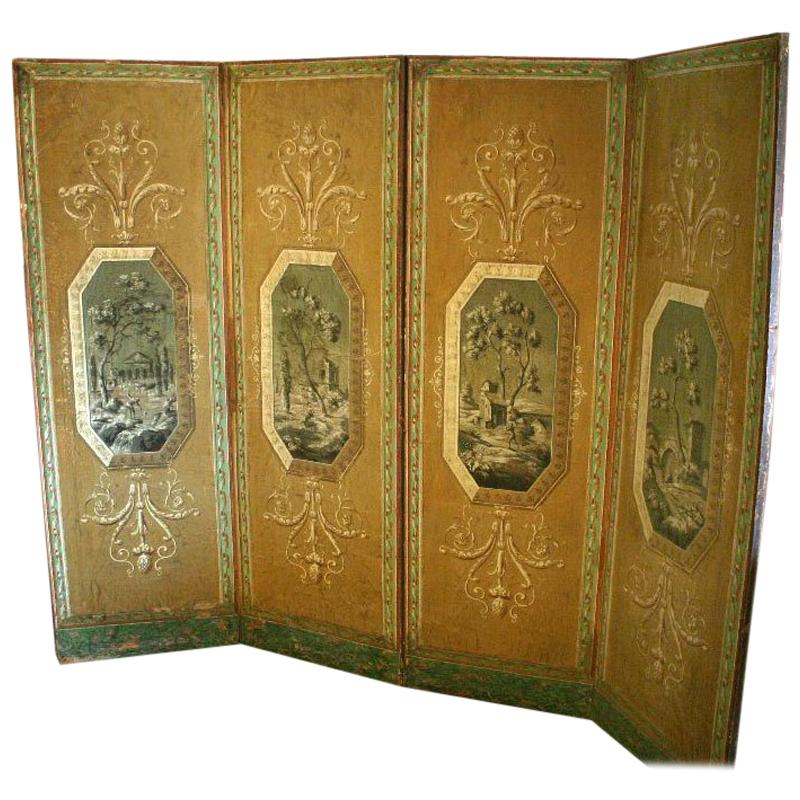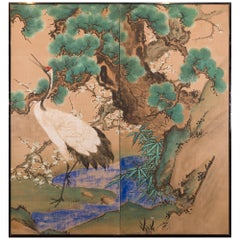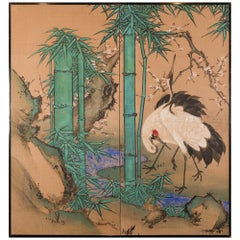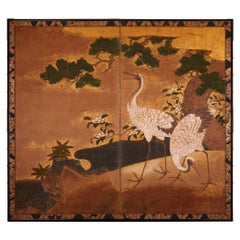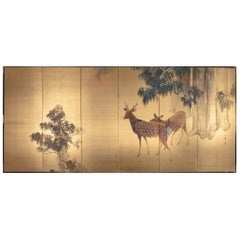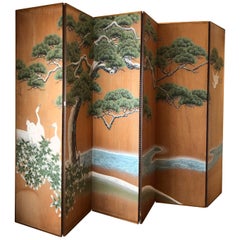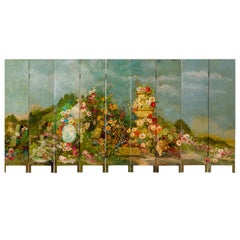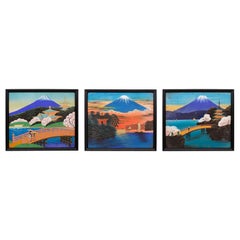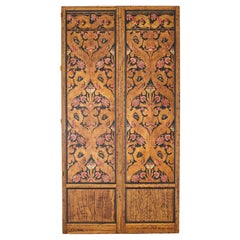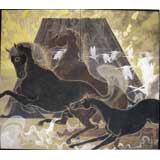
Japanese Screen: Painting of Horses and Cranes at Mt. Fuji.
View Similar Items
Want more images or videos?
Request additional images or videos from the seller
1 of 2
Japanese Screen: Painting of Horses and Cranes at Mt. Fuji.
$45,000List Price
About the Item
- Place of Origin:
- Period:
- Date of Manufacture:Mid 20th century
- Condition:Condition Report upon request.
- Seller Location:Hudson, NY
- Reference Number:Seller: S11301stDibs: U081002855111
About the Seller
5.0
Recognized Seller
These prestigious sellers are industry leaders and represent the highest echelon for item quality and design.
Established in 1971
1stDibs seller since 2008
166 sales on 1stDibs
Typical response time: 17 hours
Associations
The Art and Antique Dealers League of AmericaAntiques Associations Members
Authenticity Guarantee
In the unlikely event there’s an issue with an item’s authenticity, contact us within 1 year for a full refund. DetailsMoney-Back Guarantee
If your item is not as described, is damaged in transit, or does not arrive, contact us within 7 days for a full refund. Details24-Hour Cancellation
You have a 24-hour grace period in which to reconsider your purchase, with no questions asked.Vetted Professional Sellers
Our world-class sellers must adhere to strict standards for service and quality, maintaining the integrity of our listings.Price-Match Guarantee
If you find that a seller listed the same item for a lower price elsewhere, we’ll match it.Trusted Global Delivery
Our best-in-class carrier network provides specialized shipping options worldwide, including custom delivery.More From This Seller
View AllJapanese Two Panel Screen Manchurian Crane and Turtles
Located in Hudson, NY
In Japan, cranes symbolize fidelity as they mate for life and turtles symbolize longevity. Additionally, this screen also has the Japanese motif of sho-chiku-bai, or the three friends of winter (pine, plum, and bamboo). So called the three friends of winter because all three flourish during the cold months. This screen was originally fusuma doors...
Category
Antique Mid-19th Century Japanese Edo Paintings and Screens
Materials
Paper
Japanese Two Panel Screen Amorous Cranes and Turtles
Located in Hudson, NY
Japanese two panel screen: Amorous Cranes and Turtles. In Japan, cranes symbolize fidelity as they mate for life and turtles symbolize longevity. Additionally, this screen also has the Japanese motif of sho-chiku-bai, or the three friends of winter (pine, plum, and bamboo). So called the three friends of winter because all three flourish during the cold months. This screen was originally fusuma doors...
Category
Antique 1850s Japanese Edo Paintings and Screens
Materials
Wood, Paper
Japanese Two-Panel Screen: Cranes on Gold
Located in Hudson, NY
Early Kano School painting of pine trees overlooking two beautifully painted cranes and floral design in a natural setting by water’s edge. Mineral pig...
Category
Antique Late 18th Century Japanese Paintings and Screens
Materials
Gold, Gold Leaf
Japanese Six-Panel Screen Buck and Doe at Dawn
Located in Hudson, NY
Japanese six-panel screen: Buck and doe at dawn. Showa period (1926-1989) painting of a rising sun seen through a woodland scene with a pair of deer. In Japan, deer are thought to be...
Category
Early 20th Century Japanese Showa Paintings and Screens
Materials
Bronze
Japanese Two Panel Screen Mother and Child at Bedtime
Located in Hudson, NY
Japanese two panel screen: Mother and Child at Bedtime. Showa period (1926 - 1989) painting by Hideo Naishou who was born in Kobe in 1918. Lovely scene of a mother putting her baby t...
Category
Mid-20th Century Japanese Showa Paintings and Screens
Materials
Silk, Wood
Japanese Two Panel Screen: Horses in Stable
Located in Hudson, NY
A pair of captivating black and white horses, believed to define hard work and power in Japanese mythology, are beautifully rendered in this painting of mineral pigments on mulberry ...
Category
Antique Early 19th Century Japanese Paintings and Screens
Materials
Bronze, Gold Leaf
You May Also Like
Hand-Painted Japanese Inspired Screen by Artist Robert Crowder
By Robert Crowder
Located in San Francisco, CA
A tall, beautifully hand-painted on wood panel folding screen of Japanese style by artist Robert Crowder (b. 1911 - d.2010). Signed on the back side.
After working as a missionary in Korea, Crowder went to Japan to study Nihonga ("Japanese-style paintings" are paintings that have been made in accordance with traditional Japanese artistic conventions, techniques and materials. While based on traditions over a thousand years old, the term was coined in the Meiji period of the Imperial Japan, to distinguish such works from Western-style paintings) Robert H...
Category
Late 20th Century American Screens and Room Dividers
Materials
Wood
$3,250 Sale Price
62% Off
Antique Large Screen with a Hand Double Painting
Located in Alessandria, Piemonte
M/781 - Interesting large hand painted on wood high screen : from France, mid '800.
It can be the background of an entire wall: an imaginary garden with flowers' triumph; on the o...
Category
Antique Late 19th Century French Aesthetic Movement Paintings
Materials
Paint
Three Japanese Paintings of Mount Fuji
Located in Palm Beach, FL
Set of three perspectives of the iconic Mount Fuji painted with gouache, now under glass, in bold colors with architecture, bridges, boats, people, and trees all with the same confid...
Category
Early 20th Century Japanese Meiji Paintings
Materials
Paint
$2,950 / set
Pair of Art Nouveau Embossed Painted Leather Panel Screens
Located in Rio Vista, CA
Extraordinary pair of massive art nouveau leather inset panel screens featuring flora and fauna embossed and painted designs. The leather panels ar...
Category
20th Century American Art Nouveau Screens and Room Dividers
Materials
Leather, Wood
$3,360 Sale Price / item
30% Off
Hand-Painted Folding Screen of Worlds Fair Exposition Scene, French
Located in San Francisco, CA
A charming and wonderfully detailed three panel folding screen, tempura or gouche painting on paper and laid down on canvas of the World's Fair Exposition scene, France, mid-19th cen...
Category
Antique 19th Century French Screens and Room Dividers
Materials
Canvas
Japanese Screen Painting, circa 1700 'Horses' by Kano Tanshin
Located in Kyoto, JP
Horses
Kano Tanshin Morimasa (1653-1718)
Two-panel tea-ceremony Japanese screen or furosaki
Ink on gold leaf,
late 17th-early 18th century
Measures: H 55 cm x W 182 cm
The Kano school was closely aligned with the warrior class in Japan. The samurai, who lived in a closed and rigid hierarchical society established by the Shogunate, were drawn to the energy and freedom horses symbolize; Kano school artists commonly depicted the equine creatures as they are here, in unfettered and carefree family groups. China originally introduced horse paintings to Japan; the works typically focused on capturing the essence of horses in their various environments and often involved integrating human figures into the images.
Kano Tanshin Morimasa (1653-1718) was the son of Kano Tanyu...
Category
Antique 1690s Japanese Edo Paintings and Screens
Materials
Gold Leaf
Recently Viewed
View AllMore Ways To Browse
Japanese Crane Panel
Japanese Crane Screen
Mt Fuji
Horse Panel Screen
Japanese Horse Painting
Japanese Screen Horses
Alex Itin
Alexander Julian Furniture
Angela De La Cruz
Anna Syberg
Anthony Kahn
Antique Oil Paintings Of Venice Grand Canal Gondolas
Antonio Guanse
August Riedel
Batuan Painting
Benjamin Jorj Harris
Bernard Dufour
C Delort
